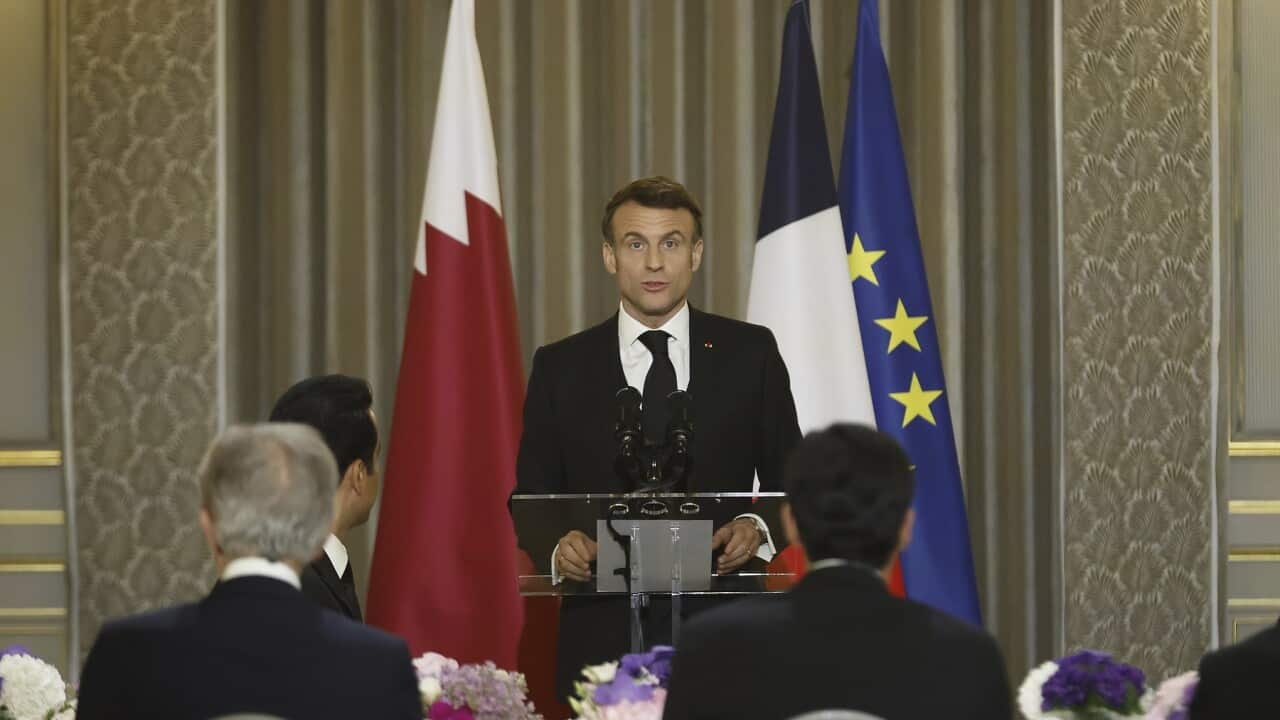TRANSCRIPT
European Commission spokesman Peter Stano has reaffirmed the bloc's support for Ukraine but says it will not be sending troops into the country.
"There is no decision at the EU level about any kind of sending of troops or ground forces to Ukraine to fight. At this stage, the consensus in the European Union and the EU level is to give Ukraine whatever it takes, for how long it takes, so that Ukraine can win its rightful war of defence."
However Mr Stano says that member states can take any decision on their own to help Ukraine.
"The bulk of of bilateral contributions to Ukraine is in the hands of the member states. The member states decide what is the best way they can support Ukraine based on its needs, so it's a decision of the member states."
European military heavyweights Germany and Poland also affirmed that they will not be sending troops to Ukraine, after reports that some Western countries may be considering doing so as the war with Russia enters its third year.
NATO Secretary-General Jens Stoltenberg also affirmed that military alliance has no plans to send combat troops into Ukraine.
"There are no plans for NATO combat troops on the ground in Ukraine. We must remember what this is, this is a war of aggression by Russia against Ukraine and blatantly violating international law. According to international law, Ukraine, of course, has the right to self-defense, and we have the right to support them in upholding that right. And that's exactly what NATO allies are doing and will continue to do."
Russia's President Vladimir Putin has warned that direct conflict between NATO and Russia would be inevitable if the alliance sends combat troops.
Dmitry Peskov is President Putin's spokesperson.
"The very fact of discussing the possibility of sending certain contingents to Ukraine from the NATO countries is, of course, a very important, new element. The number of the participating countries of this event that took place in Paris retain a sober assessment of potential dangers of such actions, the potential dangers of direct involvement in hot conflict on battlefields. It is not in the interests of these countries, and they should be mindful. In that case (of sending troops), we would need to talk not about the probability, but about the inevitability (of a direct conflict between NATO and Russia).”
Moscow's warning came a day after French President Emmanuel Macron said sending in Western ground troops should not be “ruled out” in the future, after hosting a conference of top officials from more than 20 of Ukraine's Western backers.
"Everything was discussed this evening in a very open and direct manner. There is no consensus today to officially, openly, and with endorsement, send troops on the ground. But in terms of dynamics, nothing should be ruled out. We will do everything necessary to ensure that Russia cannot win this war."
Dutch Prime Minister Mark Rutte has also used the conference to pledge further support for Ukraine.
He says the Netherlands will contribute over $165 million dollars to the Czech initiative to buy ammunition for Ukraine from countries around the world.
"I think there was a great sense of urgency particularly for the short term, of ammunition and of air defence, and particularly on ammunition, there is this great Czech initiative, which is buying worldwide ammunition and shells for Ukraine. And the Netherlands decided to announce tonight to contribute over 100 million (euros) to that initiative and hope other countries will follow."
Top U-S congressional leaders met with President Joe Biden on a number of matters, including the war on Ukraine.
Mr Biden implored the top four leaders of Congress to act quickly to pass emergency aid for Ukraine.
Among them was Senate Majority Leader Chuck Schumer who stresses the importance of acting quickly to further support Ukraine.
"This was so, so important and that we couldn't afford to wait a month or two months or three months because we would, in all likelihood, lose the war, NATO would be fractured at best, allies would turn away from the United States and the boldest leaders, the boldest autocrats of the world ... The presidents of North Korea and Iran would be emboldened thinking that the United States was this soft, fat, country that lost its way and would take advantage. And so we said to the speaker, get it done."
Speaker of the House Mike Johnson would rather see the funds allocated to securing America's borders, rather than for foreign aid.
"I am also sure you heard there was, discussion about the supplemental, spending package. And, I was very clear with the president and all those in the room that the house is actively pursuing and investigating all the various options on that and we will address that in a timely manner. But again, the first priority of the country is our border and making sure it's secure. I believe the president can take executive authority right now today to change that. And I told him that again today in person, as I've said to him many times publicly and privately over the last several weeks, it's time for action. It is a catastrophe and it must stop."













